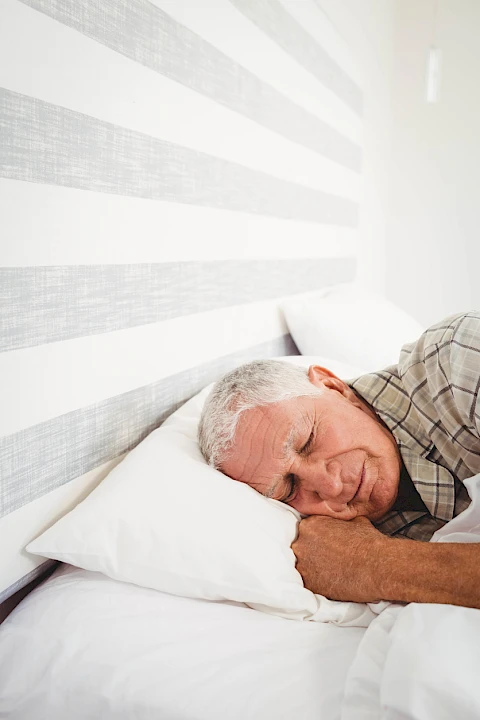
Sleeping well is crucial for everyone, especially seniors, because it supports memory, immune function, mood stability, and overall physical health. However, seniors may encounter new sleep challenges that can impact their well-being. Get practical advice for caregivers on assisting seniors in enhancing their sleep quality.
What You Need to Know About Sleep Changes in Seniors
As their sleep patterns change, many seniors find themselves going to bed earlier and waking up earlier. They may also spend less time in deep sleep, leaving them tired during the day. These changes are regular but also frustrating.
Changes in sleep can adversely affect one’s health. Poor sleep can lead to problems with memory, concentration, and mood. It can also affect physical health, increasing the risk of conditions like obesity and heart disease.
Creating a Sleep-Friendly Environment
Creating a sleep-friendly environment is essential for improving sleep quality, especially for seniors. A safe, comfortable bedroom encourages deeper rest and reduces the risk of nighttime accidents. Keep the room cool and quiet—use a fan, sound machine, or earplugs to block out noise. Blackout curtains can help maintain darkness, which supports better sleep. Choose a mattress and bedding that offer comfort and joint support, easing pressure points. Lastly, ensure the path to the bathroom is well-lit and free of obstacles to help prevent falls during nighttime trips.
Establishing a Consistent Bedtime Routine
A regular sleep schedule can make a big difference for seniors struggling with sleep. Going to bed at the same time every day helps set the body's internal clock, so you'll get up at the same time every day.
Include relaxing activities in your bedtime routine, such as reading a book, listening to calming music, or practicing deep breathing exercises. Encourage seniors to avoid screens an hour before bed, as the blue light can interfere with sleep.
Addressing Common Sleep Disturbances
Seniors often face sleep disturbances like insomnia, sleep apnea, and restless leg syndrome. It's essential to identify and manage these issues.
- If insomnia is a problem, consider factors like stress or medications. Implementing relaxation techniques can be helpful.
- Sleep apnea requires professional attention. A doctor might recommend a CPAP machine or lifestyle changes to manage this condition.
- For restless leg syndrome, gentle leg massages or stretching exercises before bed may provide relief.
The Role of Diet and Exercise in Sleep Quality
Nutrition plays a crucial role in how well seniors sleep. A balanced diet rich in vegetables, fruits, and lean proteins will improve health and promote better sleep. Limit caffeine and alcohol, especially in the hours before bedtime, as these can disrupt sleep.
Regular exercise is another critical factor. Activities like walking or swimming can improve sleep quality. It's best to exercise earlier in the day, as doing so too close to bedtime might make it hard to fall asleep. Make sure to consult with your senior’s doctor before they start any new exercise program to ensure safety.
Rest Easy with Help from Senior Helpers Seattle
Improving sleep quality in seniors requires attention to several factors. By creating a sleep-friendly environment, establishing a consistent bedtime routine, including a healthy diet and exercise, and addressing common sleep disturbances, caregivers can help seniors enjoy better sleep.
Senior Helpers Tri-Cities and SE Washington assists seniors in improving their sleep quality by helping seniors maintain healthy, consistent routines. We also provide overnight care and can support morning routines for a great start to every day. Contact us at Senior Helpers Tri-Cities and SE Washington today for assistance with personal care, meal preparation, and light housework. Whether you're in Kennewick, Walla Walla, Richland, Pasco, or Clarkston, we offer valuable resources and assistance to help seniors sleep more comfortably and healthily year-round.